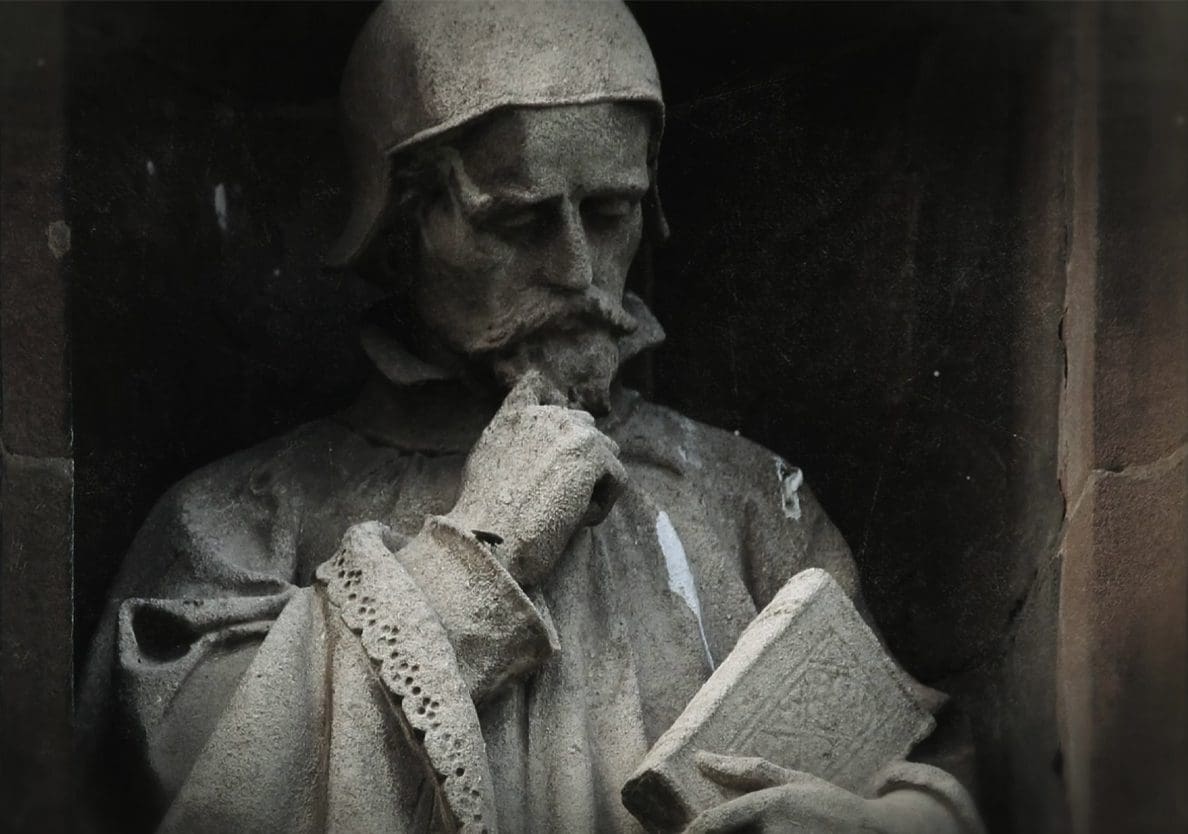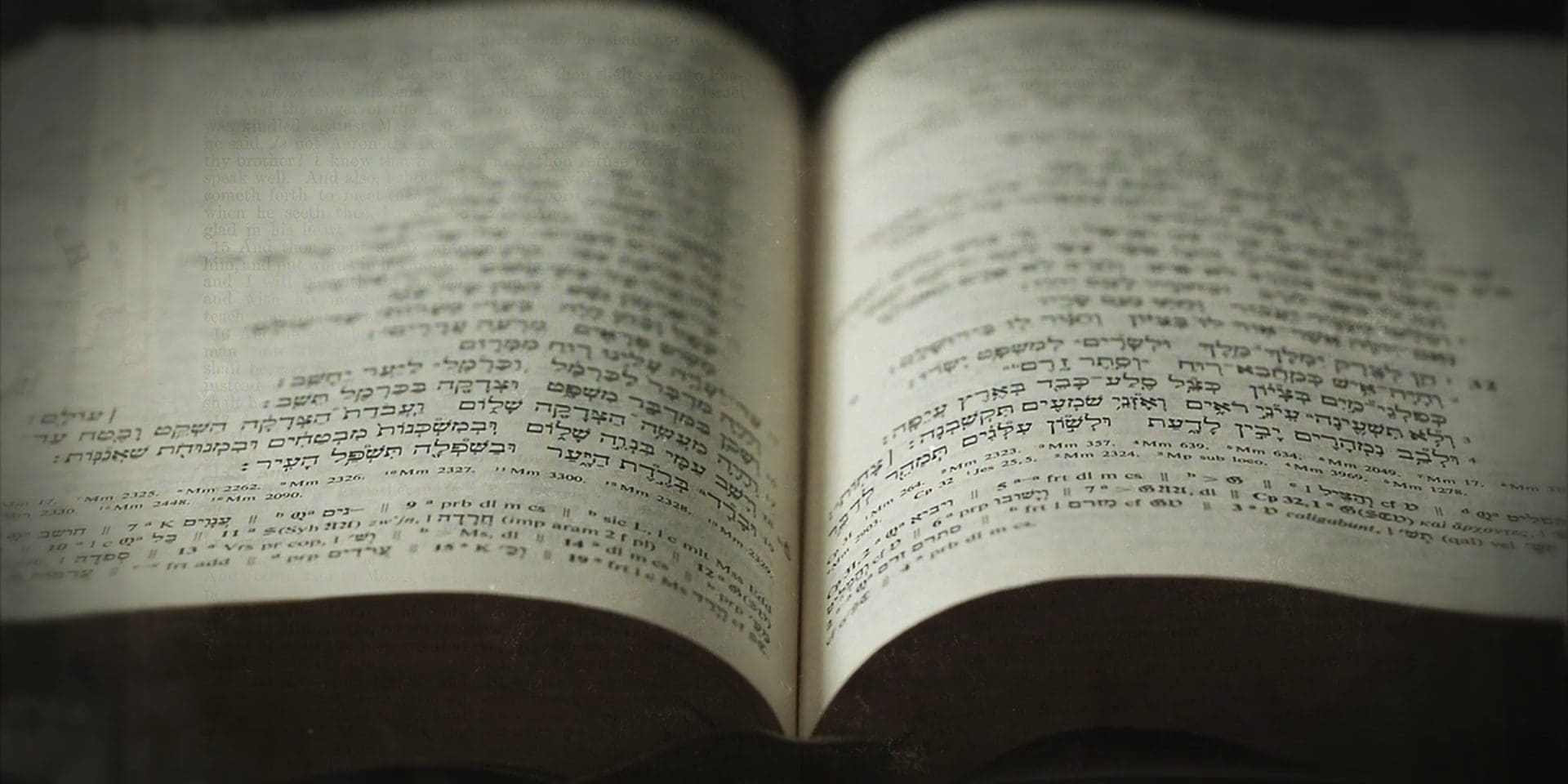Although David is the principal writer of the Psaltery with 75 out of the 150 Psalms attributed to him,[1] other contributors include the Sons of Korah, Asaph, Solomon, Heman, Ethan, and even Moses. While David, Solomon, and Moses are all well known figures, a little bit more obscure are Asaph, Heman, Ethan, and the sons of Korah.
Interestingly, Heman, Asaph, and Ethan were all Levities[2] (1 Chronicles 6:33-47) and the head musicians of David’s massive worship team—each one apparently leading a temple choir, with Heman placed in the center.[3] These three men also led in sounding the cymbals[4] and, along with their families, led worship at the dedication of Solomon’s temple (2 Chronicles 5:12). Also, because prophesying in those days was very closely linked with the playing of music, Heman, Asaph, and Ethan were all considered seers—what later Biblical writers called prophets (1 Chronicles 25:2-5).
“Interestingly, Heman, Asaph, and Ethan were all Levities and the head musicians of David’s massive worship team—each one apparently leading a temple choir.”
Heman was the human author of Psalm 88 and his position as “the king’s seer” (1 Chronicles 25:5) is certainly no surprise since he was the grandson of the great and godly prophet Samuel (1 Chronicles 6:33). And Asaph, of whom 12 Psalms are attributed, was Heman’s associate and was appointed by David in 1 Chronicles 16:5, 7 as chief musician at the sanctuary. Significantly, as 2 Chronicles 29:30 shows, Asaph composed songs of praise that the people used in worship long after his own time. In fact, “[h]is descendants continued as chief musicians into the postexilic period, many centuries after Asaph.”[5] Not to be forgotten is Ethan (called Ethan the Ezrahite), who is also probably the same as Jeduthun. He is the author of Psalm 89 and was considered among the wisest men ever known at that time second only to Solomon (1 Kings 4:31).


Also closely connected with Heman, Asaph, and Ethan are the “Sons of Korah” of whom 11 Psalms are attributed. This close connection can be seen from Psalm 88 which is doubly attributed to both Heman and the sons of Korah. But just who were these sons of Korah? Actually, these Korahites (1 Chronicles 26:1) “were [also] from a Levitical family with musical and other responsibilities at the tabernacle and temple. Their ancestor Korah rebelled against the authority of Moses and Aaron, and he and his family were put to death because of it (Exodus 6:24; Numbers 16), though the clan did not completely die out (Numbers 26:11).”[6] Later, “[i]n the days of David and Solomon, they served as musicians and gatekeepers at the tabernacle and temple (1 Chronicles 6:22–38; 9:19–34), and they were still ministering at the temple in the days of Jehoshaphat, more than a century after David (2 Chronicles 20:19).”[7] While it is not exactly clear what sort of duties were assigned to these gatekeepers, it is significant that the Psalms associated with the sons of Korah “speak of the requirements for entry into the temple and thus seem appropriate for gatekeepers.”[8]
Although it certainly seems likely that there were other contributors to the Psalms, due to the fact that one third of them remain anonymous, it is impossible to identify them. What we can be absolutely sure of, however, is their ultimate authorship—none other than the Holy Spirit of God Himself (2 Timothy 3:16-17).

Ryan Hembree is a daily co-host, speaker, and writer of Bible Discovery. He also hosts a YouTube channel that shows the unity of the Bible and how science and Scripture fit together. Ryan also has an honorary Masters of Ministry in Creation Science from Phoenix University of Theology.
[1] Although in the Hebrew text only 73 of the Psalms have “of David” in the title, the New Testament attributes Psalm 2 (Acts 4:25-26) and Psalm 95 (Hebrews 4:7) to him as well.
[2] Heman descended through Levi’s son Kohath, Asaph descended through Levi’s son Gershon, and Ethan descended through Levi’s son Merari.
[3] King James Study Bible, Notes on 1 Chronicles 6:31–48.
[4] David M. Howard Jr., NIV Biblical Theology Study Bible, Psalm 73 title Asaph.
[5] Ibid.
[6] David M. Howard Jr., NIV Biblical Theology Study Bible, Psalm 42 title Sons of Korah.
[7] Ibid.
[8] NKJV Chronological Study Bible, The Sons of Korah






